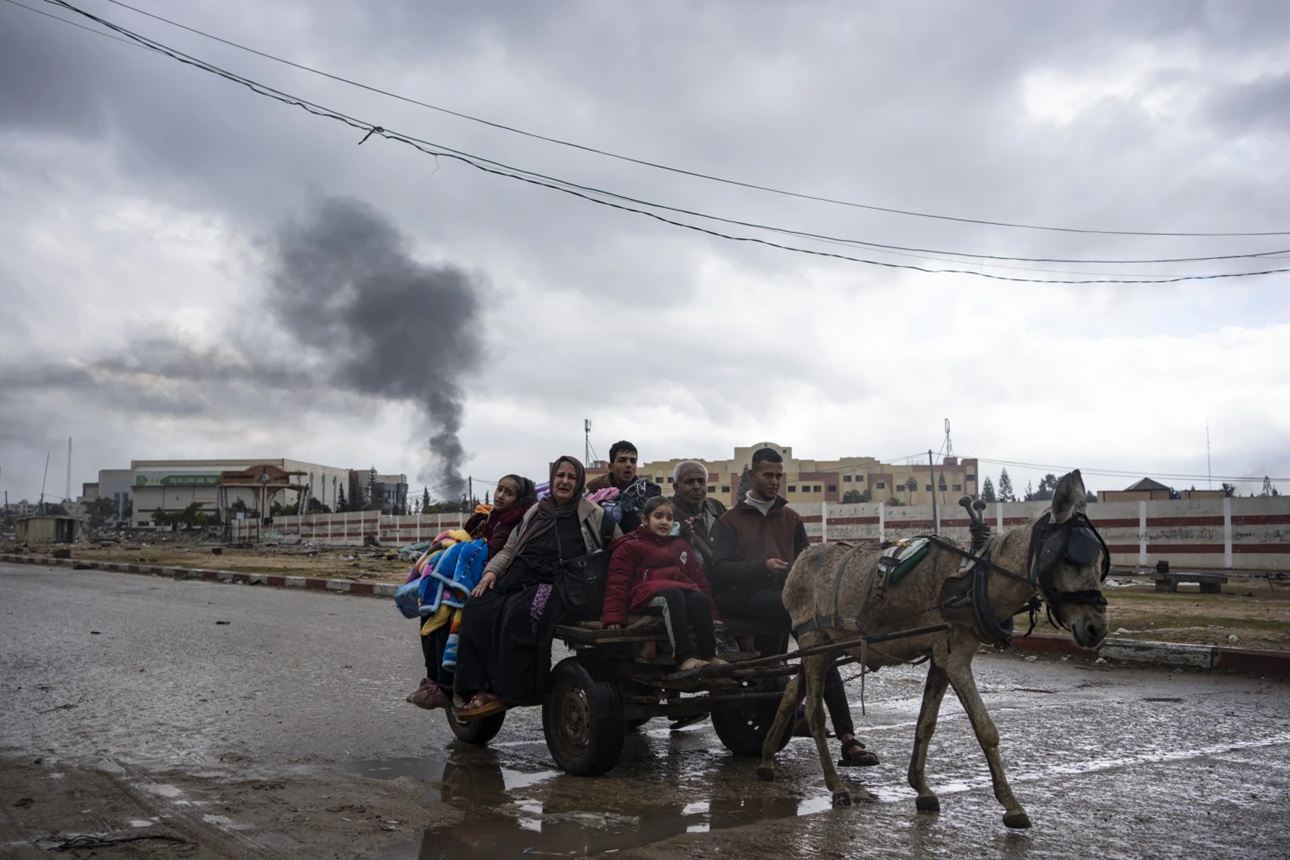Check out the quoted below (an excerpt of the article):
Lacked major criticism
But these rallies, often with governing politicians, lacked any basic criticism of the status quo or of policies which helped cause the right-wing surge. Organizers In some places even prevented Arabic protesters from taking part. Were these anti-AfD rallies possibly expected to head off more intensive or fundamental protests?
The same might be asked about a big media campaign against anti-Semitism. There were certainly enough traces of this filthy, age-old infection of German society, always lurking beneath the surface but, since reunification, marching ostentatiously down the streets and giving concerts with the worst Nazi texts and salutes.
Then, too, it was hardly surprising that some Arab ex-pats, including Palestinians with families in Gaza, tragically often victims, occasionally shouted anti-Israel slogans (or, very rarely, anti-Jewish ones as well). Not every single person recognized the difference between armed Jewish soldiers looting and killing in Gaza and ordinary Jewish people in Germany, especially if their organizations unreservedly supported the soldiers, bombers, and drones. (And yes, sadly, but luckily quite rarely, there are some who consider themselves leftists but cannot grasp that for every Goldman Sachs bank, there is a Bank of America, a Chase, Wells Fargo, or Citibank. And for every Theodor Herzl or Jabotinsky, there was a Karl Marx, a Rosa Luxemburg, and a multitude of Jewish anti-fascist heroes and heroines. But anti-Semitism in Germany is not nearly as widespread as anti-Islam, anti-Muslim, anti-Arab prejudice – or as violent. A one-sided media constantly worsened the matter.
Such top-led campaigns failed to silence all the protests. The next Gaza action planned was a three-day conference in mid-April, aimed at opposing Germany’s role as a major supplier of weapons to Netanyahu. Predictably, it ran into trouble from the start; Berlin mayor Kai Wegner found it “intolerable” that it was to take place in Berlin. But he could not forbid it. Or could he?
Less than two hours after it began hundreds of policemen, uniformed or plain-clothed, stormed in, cut livestream video and even electricity, dispersed the 250 people taking part, and roughly arrested one Jewish participant who dared to talk back.
The police offered an explanation: “There is a risk that a speaker will be shown via video who in the past made anti-Semitic remarks and glorified violence. For this reason, the gathering was ended and banned on Saturday and Sunday as well.” It seems that the exiled Palestinian writer Salman Abu Sitta, scheduled to appear by video link, had earlier stated that the men from Gaza who conducted the raid on October 7th had “broken through a siege.”
Another planned speaker, the Palestinian-British surgeon Ghassan Abu Sittah (who is the Rector of Glasgow University, elected by the students), was held for three and a half hours by federal police at Berlin airport and then prevented from entering Germany (or, soon after, any EU territory).
Former Greek Finance Minister Yanis Varoufakis had also been scheduled to address the congress via video; the organization he founded in 2016, Democracy in Europe Movement 2025 (DiEM25), with members including Ken Loach, Naomi Klein, Noam Chomsky, and Julian Assange, was a major sponsor of the congress. Reacting angrily to the raid and ban, Varoufakis wrote that what “Germany’s police has just done is proof that fascists no longer need to be in government to be in power.”
Terminating the conference was certainly a clear warning to keep quiet. But with Gaza still being reduced to ruins, as bad or worse than those I saw in Dresden in 1952, with the number of children killed, maimed, or starved still increasing, the protests did not cease.
It was then that the students, inspired by those at Columbia, UCLA, Harvard, and Yale, also demonstrated and camped out at colleges and universities all across Germany. The police, also copying the methods of their American colleagues, broke up the camps and arrested students, despite angry responses by many professors and other staff members. At the moment, as in the USA, college presidents are under attack.
But the pillar protectors of German “law and order” have also taken some hard body blows.


He's great. Literally lived in the Warsaw countries through most of their existence.